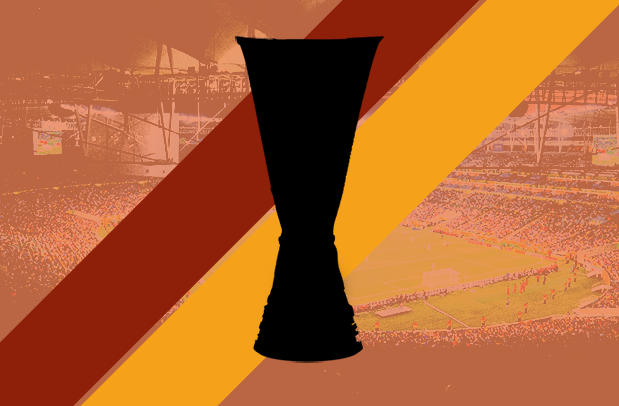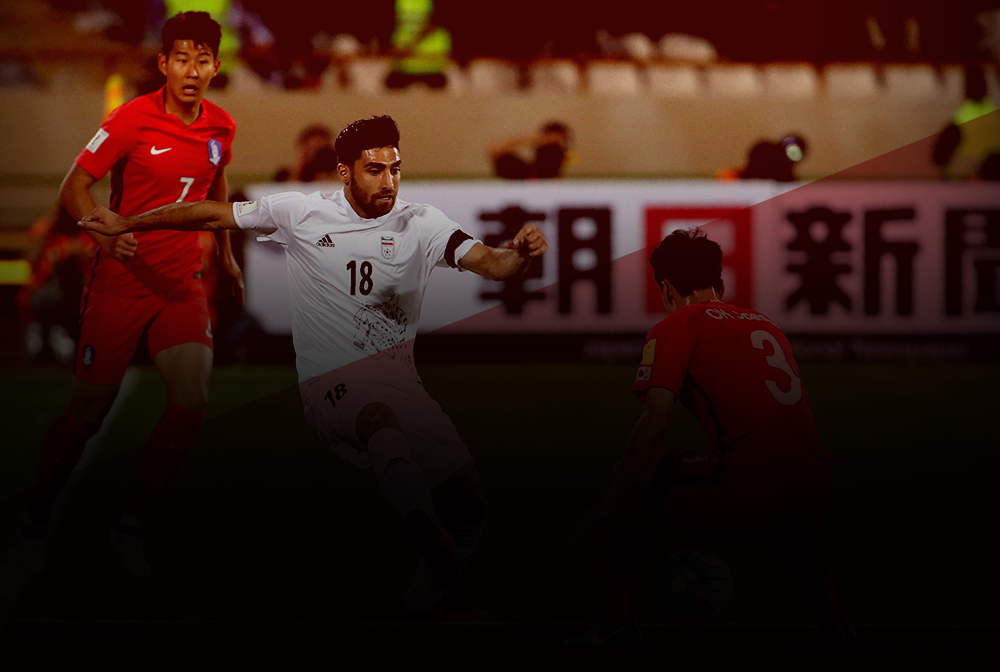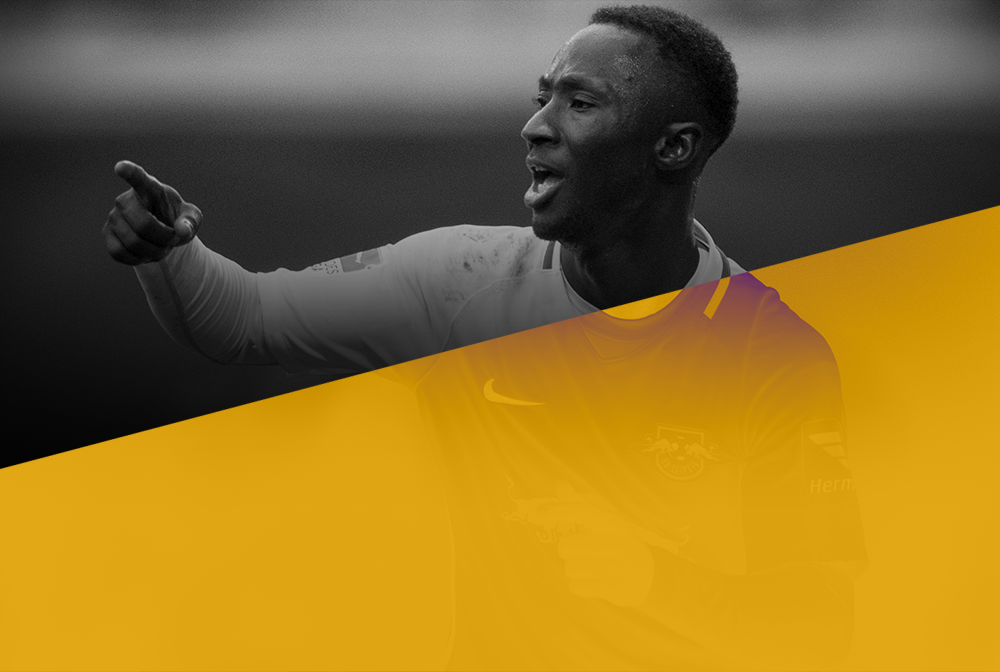Oliver McManus takes us on a journey through some of the more obscure parts of Europe as he tells us about some of the Hipster teams to watch out for in the Europa League.
Welcome to Part Two of our guide around the clubs to watch in the Europa League this season – last time we covered Qarabag, Dundalk, Olympiacos, Krasnodar and Hapoel Be’er Sheva but 5 new team are getting the McManus treatment this time around and I’m going bigger and better than ever before!

APOEL
Next up, we have APOEL which does actually stand for something but it’s incredibly long and, also, in another language, so we’ll just stick with calling them APOEL for now.
In all seriousness, the most successful team in Cypriot history, The Legend have won 25 league titles, as well as 21 Cypriot Cup’s and 13 Super Cup’s – it’s fair to say that the club has achieved all there is to achieve domestically.
The 2016-17 APOEL season was their biggest challenge in recent history, and with it came no less than 3 managers; intriguing to note that each time a manger was replaced, they were safe at the top of the league, anyway.
The regular season saw them run out ahead of AEK Larnaca by a single point, but in the Championship round, they really hit their stride, going on to win the title by 8 points, and in some style too.
‘Goals galore’ is an appropriate alliterative description of their playing style, 92 goals bagged in the season, with 4 players gracing the league’s top 11 with their presence – Fernando Cavenaghi finished top of the pile with 19, in 5th place we find, fellow Argentinian, Tomas de Vincenti on 15 goals. 11 and 10 goals for Cypriot locals, Georgios Efrem and Pieros Sotiriou saw them finish 9th and 11th in the league, respectively.
APOEL have a long record of mixed success in European competition, stretching back to the 1963-64 UEFA Cup Winner’s Cup when they lost 18-1 to Sporting CP, all the way to the present day where they find themselves basking in a scintillating group featuring Olympiacos, Astana and Young Boys.
Having been an ever-present team throughout the last 14 editions of UEFA competitions, undoubtedly their finest moment came in the 2011-12 Champions League where they defied all the odds to progress to the quarter-finals of the tournament.
As mentioned previously, APOEL are in a group with Astana (of Kazakhstan), Young Boys (Switzerland) and Olympiacos (Greece). Seemingly, for me, one of the tightest groups in this year’s Europa League, it will be tough for APOEL to progress but, boy oh boy, does it promise fireworks, sparkles and the whole shebang of a party.
Historical clashes with Astana would suggest that, that encounter will be incredibly tight and I would expect it to be much the same with Young Boys. Olympiacos are in a different class when it comes to quality, but I wouldn’t say they are untouchable – the group is there to take and, trust me, APOEL are going to take it by the scruff of the neck.
Astra Giurgiu
Known as The Black Devils, Astra are the current Liga I champions and their rise up the Romanian football league pyramid has been exponential, to say the least.
If we rewind back to the 2007-08 season, we can find Astra lurking under the guise of FC Ploiesti in the third tier of Romanian football – ingeniously called Liga III – where they stormed to their inter-divisional title, losing only once in the 34 game season.
The 2008-09 season saw them return to Liga II – a league they had won 11 years previously – and their final season playing as Ploiesti. A constant battle between themselves and the good folk of Ceahlăul Piatra Neamţ, saw Ploiesti finish as runners-up but, more importantly, secure their status in Romania’s top flight – a rapid rise to match their dreadful demise.
For the next three years, it was a transitional period for the club who adopted the newfound sobriquet of FC Astra Ploiesti with no less than 7 managers taking to the helm and 3 distinct mid-table finishes.
2012-13, however, saw a real turnaround in fortunes for the club, rather coincidentally occurring at the same time of their latest name change to the Astra Giurgiu that we all know and love!
An incredible campaign saw five managerial changes during the season, including two in the space of seven days and, even more incredibly, a 4th place finish for the team. With a tally of 60 points, they finished a mere 3 points away from 2nd place in the league but, despite this disappointment, they set a new standard for the achievements of Astra.
The following two seasons saw them finish as runners up in the 2013-14 Liga I and win their first piece of major silverware in their history – the 2013-14 Cupa Romaniei, followed by the 2014 Supercupa Romaniei. It was a gold rush for the club (well, silver-rush but that doesn’t sound as good)!.
“Astra Giurgiu, Astra Giurgi-who?”, is the answer that you most probably got if you asked any footballing fan a mere 4 or 5 years ago. But now, they are a relative giant-killer in European football – as West Ham fans know all too well.
The first chapter of this story was last season, in the 3rd Qualifying round of the Europa League, Astra put on a display at home to win the tie 2-1 before taking the fight to Upton Park where they escaped with a 2-2 draw, a 4-3 win on aggregate and the biggest result in their history.
Just a month and a half ago, this story reared its head again, as Astra and West Ham were drawn to face each other in the play-off round. Yet another feisty game in Romania saw Astra salvage a 1-1 draw at the last minute, before they travelled to the glamourous, new, Olympic Stadium where they nabbed a 1-0 win to put paid to the hope of the Hammers for yet another year.
A group with Viktoria Plzen, Roma and Austria Wien will put their talent to test, but it will be a test worth their while if they are to prove that they have the credentials to pull off a coup or two against the big boys of Europe.
Red Bull Salzburg
The only team in this article that doesn’t begin with an A (more by luck than anything else), Red Bull Salzburg are from Austria though so they sort of fit in with the theme.
Monopolized by the big-bucks of energy-drink giants Red Bull, Salzburg won their 3rd successive Austrian Bundesliga title and, in all honesty, their domestic supremacy doesn’t really look like coming under a serious challenge any time soon.
Having won the title by 9 points last time around, Salzburg can have one eye firmly concentrating on the Europa League and a group which sees them come up against Schalke, Krasnodar and Lille.
Thanks to the Red Bull ‘network’ of clubs, and their very own FC Liefering academy, the face of Salzburg is a youthful one and this runs right through the core of the squad – 43 year-old, former Brighton manager, Oscar Garcia has been in charge since December of 2015 and with him, he brings a fast-paced, attack-orientated playing style, deliberately designed to wear down the opposition.
Garcia has had been at 4 clubs in 5 years and, although health problems have limited to just 125 games, he is showing glimpses of managerial stardom; at Salzburg, he has a team that is truly his own.
Powered by the prolific Jonathan Soriano, – who has an incredible 164 goals from 188 appearances for Die Roten Bullen – Garcia has been able to build a young squad that is mature beyond their age; the likes of Valentino Lazaro had shown previous signs of spark but, since Garcia came on board has been an absolute maestro in the park.
Europe has been a mixed path for Salzburg, tending to do pretty well or to fail completely at the earlier stages; a run to the Round of 16 in the 2013-14 Europa League saw them sweep past Ajax 6-1 in the progress; on the other hand, 2015-16 saw them crash out at the first time of asking against Dinamo Minsk.
Oftentimes, Salzburg can get criticised for exploiting the financial fortunes of Red Bull but, what gets forgotten in these conversations is that they were very much at the top of the Austrian domestic scene, long before any big-eyed investors stepped on to the scene.
The only question left to answer then, for Salzburg, is whether they have the self-belief to perform well in the competition after a somewhat shaky start to the season.
The group shouldn’t be what fazes them, they have enough quality to proceed but, as followers of the Austrian Bundesliga often see, The Red Bulls are often their own worst enemy – either being overly confident in their ability and becoming complacent or, on the complete flipside, not being confident enough and leaving themselves open to attack.
I must confess, I do have quite the soft spot for this small-cum-big club from Austria and I will be rooting for them all the way – albeit in the comfort of my, distinctly small, living room.
AZ Alkmaar
Our penultimate trip around the continent sees us take in the splendour of Holland and the story of AZ.
A 4th place finish saw them qualify for the Europa League third qualifying round and their 8th quest into Europe in 9 consecutive years. I feel almost a bit rude, however, in saying that their final placing rather flatters them for what was an incredibly mediocre season – bar a single shining light.
Finishing with a meagre 59 points, they were 23 behind second placed Ajax and 25 behind winners PSV. To further emphasise the drab and dire state that Holland find themselves in, AZ lost a third of all games and yet, still, managed to finish comfortably within the European qualification positions.
As I say, though, this says more about the national state of play, rather than exclusively AZ’s and, as such, this is why they are featured as a team capable of causing an upset.
Back to that shining light and, last season, that was Vincent Janssen who scored 27 Eredivisie goals in his first, and only, season in the top flight. So impressive were his performances that Tottenham snapped him up for £17million in the summer.
Goal-scoring, therefore, is distinctly not an issue for them but having lost their main man up front, they face a predicament as to what direction to move in. You see, on the books are plenty of strikers – many of whom are 23 and under – but, coach, John van den Brom, seems uncertain as to who their most potent force is.
As far as modern day is concerned, AZ have never really fulfilled any potential in Europe – save from 2 runs to the quarter-finals but, even then, the opposition they faced was of an implausibly poor standard.
Last season saw them finish last in the group stages, when they would have fancied themselves to get past Partizan and Augsburg, whilst settling for second place behind Athletic Bilbao.
The hope for AZ is one of distinct improvement, however the reality is that they aren’t good enough to really compete at such a stage – harsh as it may sound, that’s the truth of it – but facing Zenit, Maccabi Tel Aviv and Dundalk, they will face several challenges along the way and, if they can bear out the storm, they may be able to make some inroads.
Especially with the downward trend that football in Holland is currently experiencing, I think the Oranje public need a result from one of their teams in Europe – whether it’s AZ who can provide that boom in morale is yet to be seen but, it would be a real shame if they didn’t really go for it and show the world what they are capable of.
FC Astana
Our final team is Astana who were formed a mere 7 years ago yet, have already made their name as a formidably sticky side to come up against.
In six years, they have won six domestic trophies; 2 league titles, two Kazakhstan Cups and two Kazakhstan Super Cups; to further underline the achievements of the club, in 2015 they became the first Kazakh team to qualify for the group stages of the Champions League.
I do favour myself as the ultimate football anorak – being able to name footballers from all 207 countries in the world is a curse in itself – and, as such, I have been keeping an eye on the Astana story for about 3 years now.
That was just in time for a 2nd place in the Kazakhstan Premier League and, since then, they’ve pushed domestic football to a whole new level;
2014 saw them win their first top tier title, losing just 3 games in the process and ousting long-standing Kazakh titans, Aktobe by 5 points. Last year saw an even closer competition, with Astana winning by only one point but, strangely, they played far better football.
The thing about Astana is, that under the guidance of Stanimir Stoilov, they don’t just sit back and wait for the opposition to make a mistake, they go after the game from the first minute and firmly put their fate in their own hand. A strategy of high risk, but even higher rewards.
These rewards were shown no less than in the last edition of the Champions League; having navigated APOEL in the last qualifying round, a game which I saw live, they took part in a group with Benfica, Atletico Madrid and Galatasaray. Now, many could just expect them to lie down and have their belly tickled by the big bad opposition but, far from it, they took the game to each of them and emerged with points taken from the three of them.
A team based largely on the talents of Kazakhstan, they are committed to improving both the fortunes of their own team as well as the national team – because, let’s face it, they don’t have an overly-strong national team – and, as such, foreign players are only signed when they can do an exceptional job.
One such example is Junior Kabananga, a Congolese striker who made no impression in Belgium and yet was given a second chance by Astana; oh boy, has he repaid their faith – averaging a goal every two games, a significant weight will be on his shoulders to carry The Blue and Yellows to glory.
- Syria: The path to World Cup qualification - July 8, 2020
- The story of South Africa’s topsy-turvy footballing journey - November 8, 2017
- Interview: Sunil Chhetri on his foreign stints, Bengaluru FC, and the rise of Indian football - October 24, 2017

























































